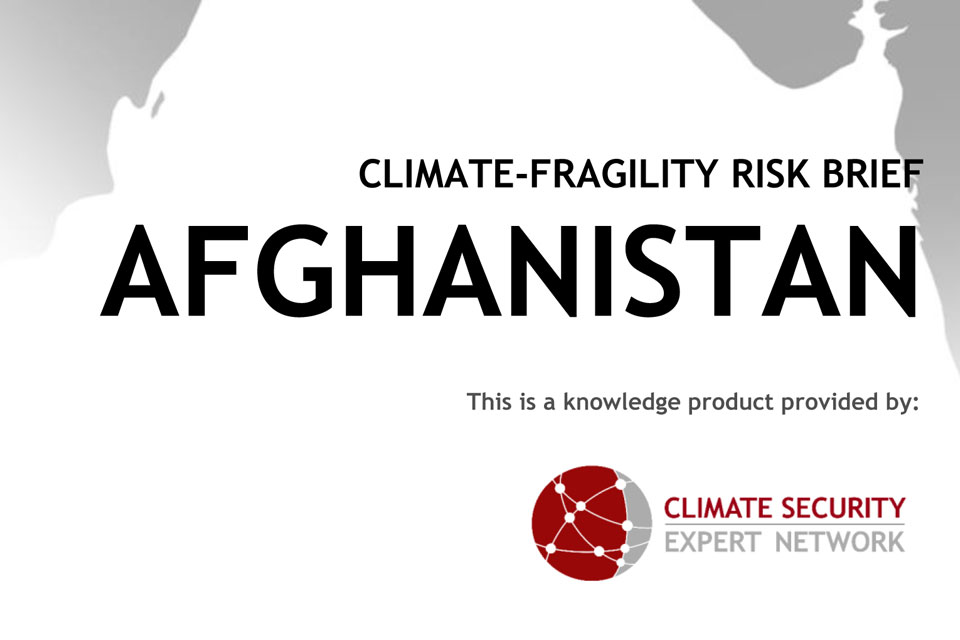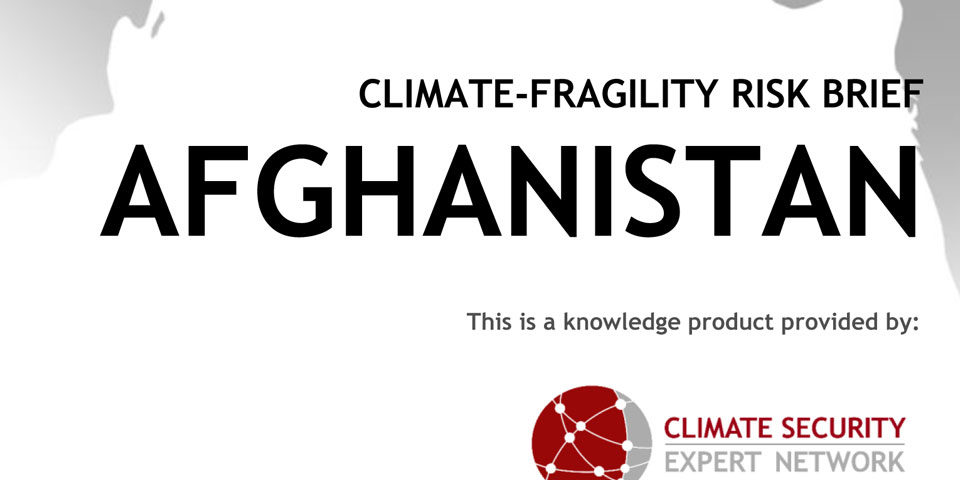Briefing on the immediate and long-term risks that climate change poses to security and development in Afghanistan.

For the past 41 years, Afghanistan, with its rich history, beautiful landscapes and ethnically diverse population, has endured nearly constant armed conflict, whether in the form of revolution, occupation, extremism or insurgency. This has taken a tremendous toll in human terms, but it has also exerted a powerful brake on the country’s development. In 1978 Afghanistan’s per capita gross domestic product was higher than that of India, Nepal, Bhutan and Pakistan, and 50% higher than that of China. Today, Afghanistan lags far behind its South Asian neighbours, while China’s per capita GDP is more than 18 times greater than Afghanistan’s.
Many Afghans are highly vulnerable to the impacts of climate change as a result of their exposure to droughts, floods and other natural disasters as well as their reliance on climate sensitive livelihoods such as rain-fed agriculture and pastoralism. Meanwhile, the legacy of four decades of conflict has increased Afghanistan’s vulnerability to climate change, the impacts of which, in the view of the Government “have the potential to seriously disrupt the foundation of the country’s economy, stability, and food security” (NEPA & UNEP, 2015). In other words, climate change may be helping to create the conditions for continued violence.
This climate fragility risk brief outlines some of the ways in which climate change threatens long-term peace and stability in Afghanistan: Climate shocks and climate ‘headwinds’ could worsen poverty, weaken governance and contribute to instability.
1. More frequent droughts could boost the drug economy.
2. Scarcer water and arable land could increase community-level and inter-ethnic conflict.
3. International tensions over transboundary water resources could undermine attempts to stabilise the country.
4. Afghanistan’s rich deposits of minerals used in renewable energy technologies, such as lithium, could become a source of political controversy.





